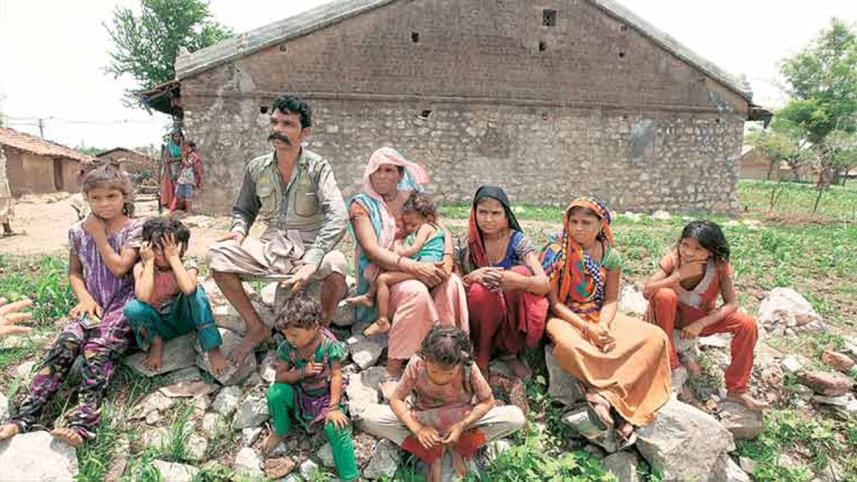In quest for boys, this couple in Gujarat has 14 daughters

Just when Bibipur village in Indian state Haryana showed the way forward for an entire nation with its 'Beti Bachao, Selfie Banao' contest, earning an appreciative nod from the Prime Minister Narendra Modi himself, a family in Gujarat is going the other way.
After 14 daughters, at the rate of one every year, this couple finally had a boy two years ago. Now, the mother is pregnant again, and the father is hoping for another boy to "look after" all those daughters, reports The Indian Express.
"I have not thought about what we will do if we have another daughter. We are both still young, so we could give it another try," says Ramsinh Sangod, the 35-year-old father and a farmer from Jharibhujhi village in Gujarat's Dahod district, the daily reports.
"My body is very weak and I know it. When I could not bear a son in the first seven pregnancies, my husband threatened me, saying he would bring another woman home. I am an orphan and I did not want to be deserted, so I agreed," says Kanu, the 33-year-old mother, now in the ninth month of her latest pregnancy.
"When God gave me a son in 2013, I wept in joy and we named him Vijay, because our devotion had finally been blessed. I am hoping this one will be a son too so that our family is complete," adds Kanu.
As per the 2011 census, Dahod has a child sex ratio of 948 girls per 1000 boys; in 2001, it was 967 per 1000. And in Garbhada taluka's Jharibhujhi, home to around 100 homes, many families have up to nine children, the Indian newspaper adds.
But Ramsinh and Kanu stand apart in their bizarre quest for sons. "In our custom, the brother has a big role to play in his sister's lives.
During the weddings of the sister's children, the brother must give expensive gifts. How will one boy look after the families of my 12 daughters? I think, it would be best to have a second son who can share the load," says Ramsinh.
Kanu agrees, even though she looks tired and haggard. "He is right. It will be very difficult for my little son to live up to the expectations of all his sisters when they grow up. Two brothers will be able to support each other," she says.
Ramsinh and Kanu have been married for 18 years. Their eldest daughters – Sevanta (17) and Neeru (15) – were married in March. Then there's Saranga (14), Hansa (13), Joshna (12), Ranjan (10), Meena (9), Payal (8), Moni (7), Hasina (5), Kinjal (4) Baigan (3) and Vijay (18 months).
Payal, Moni, Hasina and Baigan go to primary school while Hansa, Joshna, Meena and Ranjan look after the family's three cows.
Two other girls, Kali and Ovanti, died when they were about two years old. "They fell ill and died, we don't know what happened," says Ramsinh.
As the number of children increased, Ramsinh and his elder daughters were forced to work at construction sites to feed the family.
"When the crop is bad, we travel for months to Madhya Pradesh or other parts of Gujarat in search of work. I take my elder daughters along with me to work at construction sites. Once my son grows up, he will shoulder the responsibility of the family," says Ramsinh.
"There are many days when we go without food. I have lived through my pregnancies without meals too," Kanu says.
 For all latest news, follow The Daily Star's Google News channel.
For all latest news, follow The Daily Star's Google News channel.
Comments